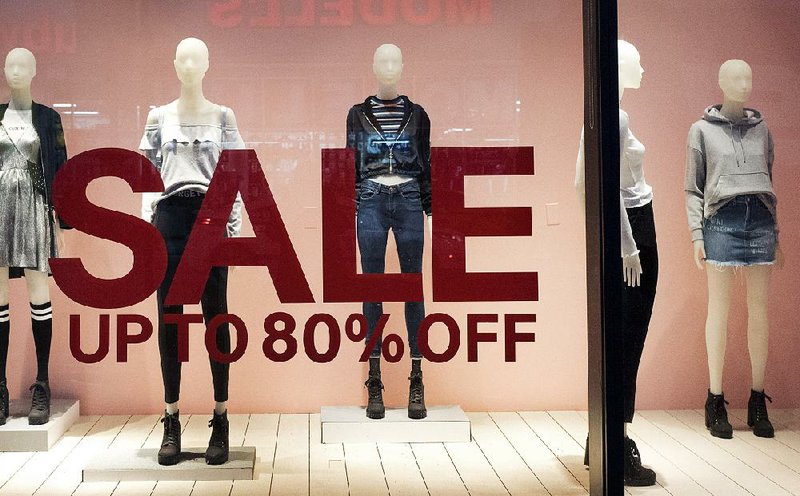WASHINGTON -- Americans stepped up their auto buying and online shopping in December, a sign of confidence after the election and a solid increase in pay.
Retail sales rose a seasonally adjusted 0.6 percent, following a small 0.2 percent gain in November, the Commerce Department said Friday.
Most of the strength was in auto sales, which jumped 2.4 percent in December, the biggest gain since April. Gas station sales rose 2 percent, largely because of higher prices. Excluding autos and gas, retail sales overall were flat.
Some economists were disappointed by that figure and said it suggested that many consumers remain cautious.
"Retail sales appear healthy enough, but looking past the headline there are a few concerns about the strength of consumer spending," said Paul Ashworth, an economist at Capital Economics. Yet "with consumer confidence surging to multiyear highs after the election and wage growth still solid, there is no reason to suspect that consumption growth is going to weaken in the first half of this year," he said.
And there were other areas of strength outside autos. Online retailers in particular reported better sales. Home and garden centers, furniture stores and sporting goods retailers also saw sales grow.
The healthy spending was likely fueled by rising consumer confidence, which has jumped after the election to the highest level in nearly a decade. Small businesses are also more bullish. And Americans' paychecks are getting fatter: Average hourly pay rose 2.9 percent in December from a year earlier, the most in seven years.
Earlier this month, automakers reported that sales reached a record high of 17.6 million in 2016. With interest rates rising, however, many industry experts forecast that sales will plateau and possibly slip this year.
The data reflected the ongoing struggles of retail chain stores as Internet merchants account for more market share. Department store sales fell 0.6 percent and electronics and appliance stores reported a 0.5 percent drop.
Yet sales jumped 1.3 percent in a category that mostly consists of online retailers but also includes catalog companies. For all of 2016, online sales jumped 13.2 percent, three times the gain of all retail sales.
Those trends were sharply in focus in the past two weeks as clothing retailer The Limited announced that it would close all 250 of its stores, costing 4,000 jobs. That followed department store chain Macy's decision to close 68 stores and cut 10,000 jobs. Sears also said last week that it would close another 150 stores.
Amazon, meanwhile, said Thursday that it would add 100,000 jobs over the next 18 months as it expands its warehouse and logistics capabilities.
Wholesale prices in the U.S. rose for the third time in four months in December, helped by rising fuel costs that are pushing inflation higher throughout the economy.
The producer-price index gained 0.3 percent in December, matching the median projection of economists surveyed by Bloomberg, following a 0.4 percent advance the prior month, a Labor Department report showed Friday in Washington. The measure was up 1.6 percent from a year earlier, the most since September 2014.
The uptick is a sign that broader measures of inflation will continue to approach the goal of Federal Reserve policy makers, as costs pick up worldwide. Steady consumer demand and more stable commodity costs are expected to help keep prices in the production pipeline on an upward track, though the dollar's strength could constrain increases.
U.S. businesses stockpiled more goods in warehouses and on store shelves in November as sales improved slightly.
The Commerce Department said business inventories rose a seasonally adjusted 0.7 percent in November, with strong gains among auto dealers, building materials stores and wholesalers. Sales edged up just 0.1 percent with the increase coming almost entirely from wholesalers.
Department stores saw their inventories and sales decline between November and October, part of a broader long-term slowdown as shoppers move to online retailers.
But auto dealers bulked up their inventories of vehicles by 1.9 percent in November ahead of year-end sales. Clothiers and building materials stores also increased their stockpiles.
Manufacturers boosted their inventories 0.2 percent in November, but their sales slipped 0.1 percent.
Information for this article was contributed by Christopher S. Rugaber and Josh Boak of The Associated Press and Shobhana Chandra of Bloomberg News.
Business on 01/14/2017

